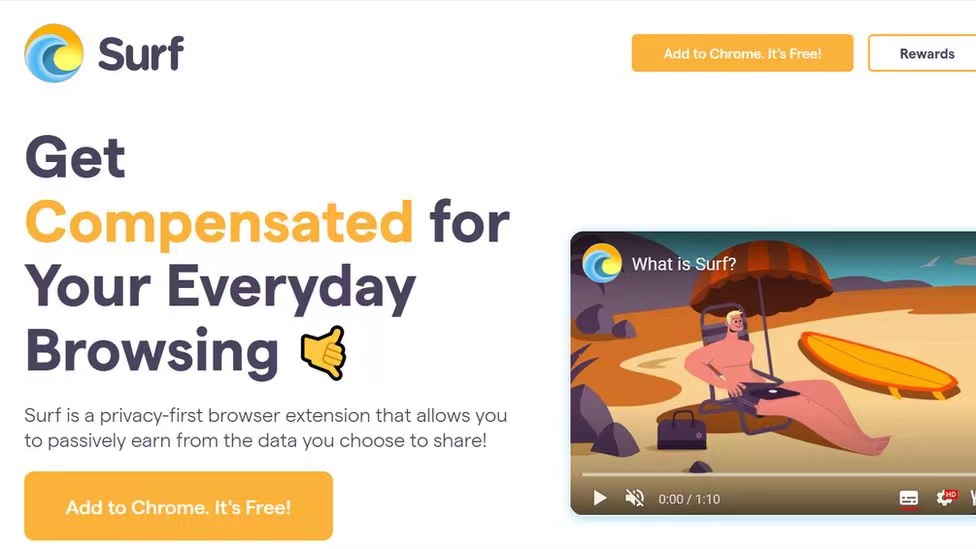 The details of what each of us look at online are an incredibly valuable resource.
The details of what each of us look at online are an incredibly valuable resource.
This tracked data helps the likes of Google and Facebook earn billions and billions of dollars a year in advertising revenue, as they use the information to target adverts at us.
For example, if you are browsing online fashion retailers to potentially buy a new pair of jeans, you should very soon see adverts for the denim trousers appearing elsewhere on your computer screen. We have all seen this happen regarding whatever we were thinking of purchasing.
The level to which we are being tracked online in this way is somewhat unnerving. The average European has data about his or her internet usage shared 376 times a day, according to one recent study. For US surfers this almost doubles to 747.
But what if you could not only have more control over how much of your data is shared, but actually make money from it?
That is the promise is of a Canadian tech firm called Surf, which last year launched a browser extension of the same name. It rewards people for surfing the internet.

Still in its beta or limited release stage in the US and Canada, it works by bypassing the likes of Google, and instead sells your data directly to retail brands. In return Surf gives you points that can be saved up and then redeemed for shop gift cards and discounts.
Firms signed up so far include Foot Locker, The Body Shop, Crocs, and Dyson.
Surf points out that all the data is anonymous – your email addresses and telephone numbers are not shared, and you don’t have to give your name when you sign up. It does however ask for your age, gender and approximate address, but these are not compulsory.
The idea is that brands can use the data that Surf provides to, for example, see what are the most popular websites among 18 to 24-year-old men in Los Angeles. Then can then target their adverts accordingly.
Surf hasn’t released details of how much people can earn, but so far it says it has enabled users to collectively earn more than $1.2m (£960,000).
People can also use Surf to limit what data they share, such as blocking information about certain websites they visit.
One Surf user is Aminah Al-Noor, a student at York University in Toronto, Canada, who says she feels that the extension has given her “the control back” over her online data.